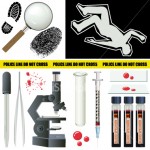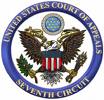Problems Aplenty With Forensic Science
 Last weekend I had the pleasure to participate in a conference sponsored by the Wisconsin Association of Criminal Defense Lawyers entitled, “Whatever Happened to the Science in Forensic Science?” The conference centered upon the 2009 report by the National Academy of Science (NAS) that confirmed suspected and significant concerns about how the criminal justice system had been using science for decades. And as if the NAS report wasn’t bleak enough, a number of speakers pointed to looming problems with DNA evidence, heretofore the vaunted “gold standard” for forensic science, and even with medical experts who diagnose child abuse. In sum, the whole field is starting to resemble a mass of toxic Hungarian red sludge that is oozing over and through the law’s inadequate bulwarks. (And no, I don’t believe that the answer is the Daubert “reliability” standard, which has proven to be ineffectual in most ways and pernicious in others.)
Last weekend I had the pleasure to participate in a conference sponsored by the Wisconsin Association of Criminal Defense Lawyers entitled, “Whatever Happened to the Science in Forensic Science?” The conference centered upon the 2009 report by the National Academy of Science (NAS) that confirmed suspected and significant concerns about how the criminal justice system had been using science for decades. And as if the NAS report wasn’t bleak enough, a number of speakers pointed to looming problems with DNA evidence, heretofore the vaunted “gold standard” for forensic science, and even with medical experts who diagnose child abuse. In sum, the whole field is starting to resemble a mass of toxic Hungarian red sludge that is oozing over and through the law’s inadequate bulwarks. (And no, I don’t believe that the answer is the Daubert “reliability” standard, which has proven to be ineffectual in most ways and pernicious in others.)
Kudos for organizing the conference go to Amelia Bizzaro (Law ‘03). The conference drew excellent criminal lawyers and forensic experts from across the country (Boston, New York, Phoenix) as well as locally talented lawyers, such as Jerry Buting and Craig Albee. Professor Paul Giannelli (Case Western) spoke about the NAS report itself while I discussed its impact on Wisconsin law governing expert evidence. Paul and I agreed that the NAS report itself could be used to cross-examine forensic experts about deficiencies in their methodologies and theories, an inexpensive yet effective way of putting this information before a jury.

